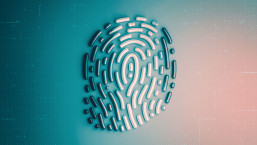Eager Apple fans waiting for the latest update on the iPhone 6 launch and the rumored iWatch have been targeted with a scam email supposedly offering information on both gadgets - entitled, in at least one variation, "The wait is over. Proudly introducing the new iPhone." The email convincingly copies Apple's style ahead of the iPhone 6 launch this year.
The scam emails were reported by MacWorld, who said that the purpose of the professionally produced emails was to direct victims to a bogus site.
iPhone 6 launch rumors
Pocket-Lint reported that the emails contained “convincing” Apple imagery - including doctored images of an iPhone 6 with larger screen, which tallies with rumours of the form factor of Apple’s next handset.
The emails reported by the two sites arrive from the email address “sales@apple.com”, and contain links leading to phishing sites, MacWorld reported.
Sapphire glass? Slimmer? Nope - just a scam
PC Advisor says that the (fake) devices are introduced with a typical flourish, and details which appear to have been culled from iPhone 6 launch rumor sites, such as the fact that the new device will have a sapphire glass screen, slimmer form factor and faster processor.
"Launch and switch between applications quickly,” the email says. “Bigger display, transparent mode, better cloud integration. Shoot, edit, and share video like never before. Slimmer, faster and sleeker. Discover many more features that make iPhone 6 the best iPhone yet."
iPhone 6 – the best iPhone yet? Not so fast
The timing is, of course, wrong. Neither the iWatch or iPhone 6 launch has been confirmed by Apple. Pocket-Lint reports that the “wait is not even nearly over”, saying the announcement for the iPhone 6 launch is “expected in December”. The launch of Apple’s rumored iWatch has not even been confirmed.
Cybercriminals often follow the latest news - and scams timed to coincide with it are not unknown. For instance, scammers released a version of BBM – BlackBerry’s instant messenger software – on a rumored release date for the software on Android in 2013.
BlackBerry had previously said that the rumor was wrong – but that didn’t save 100,000 users from downloading the app, which delivered unwanted adverts to users, and didn’t work at all.




